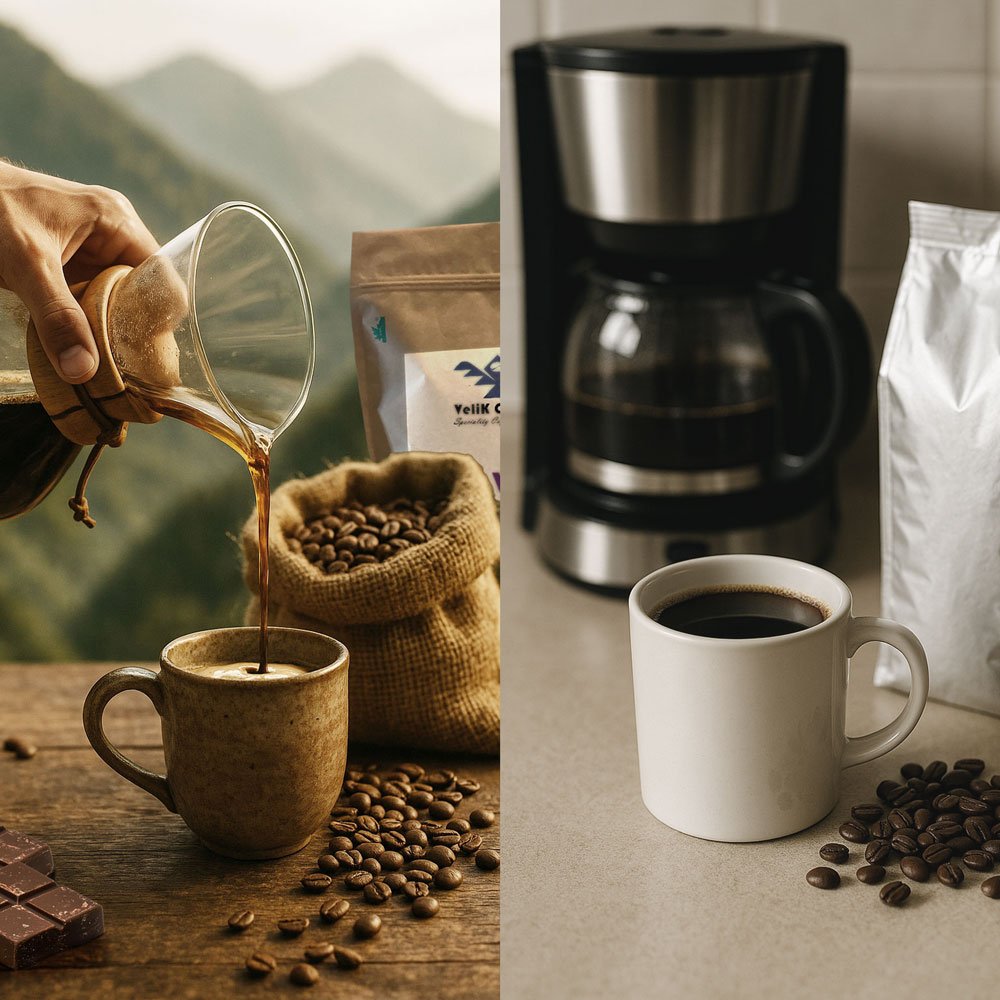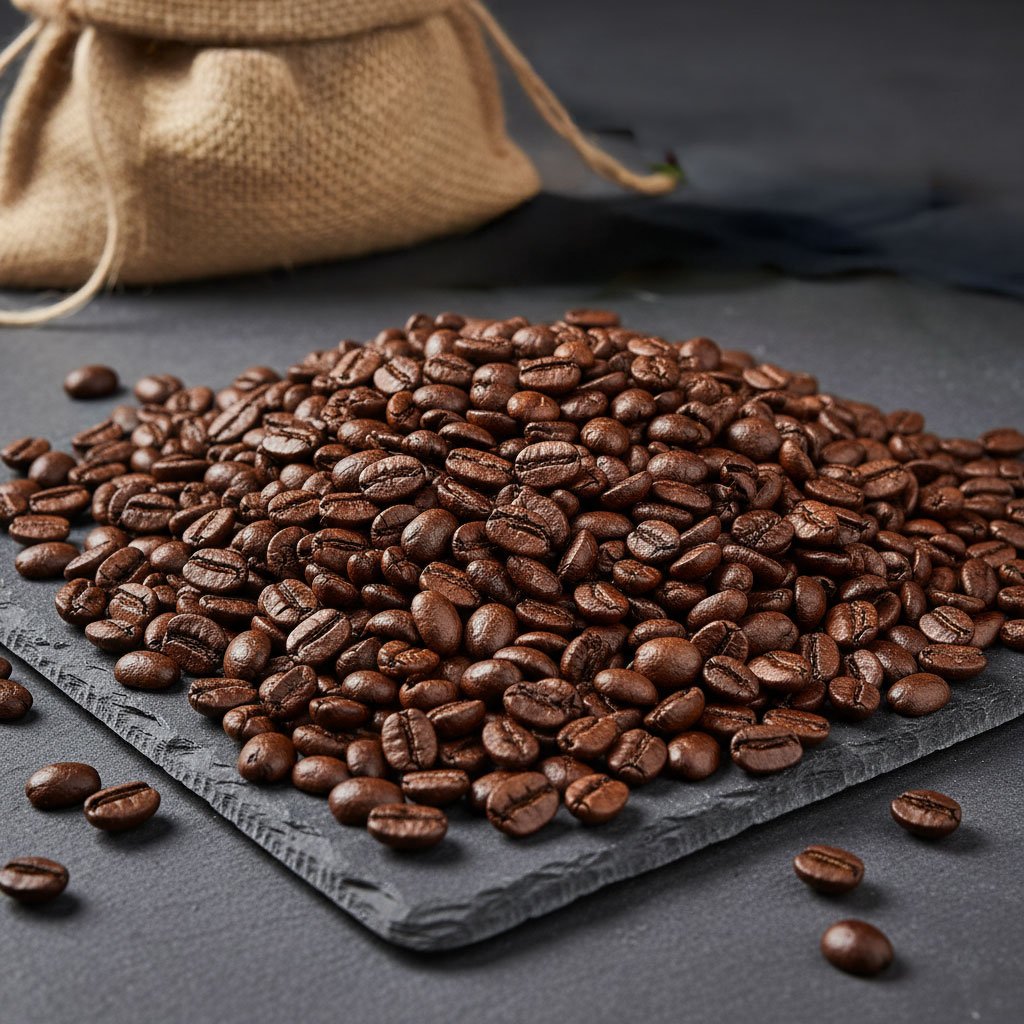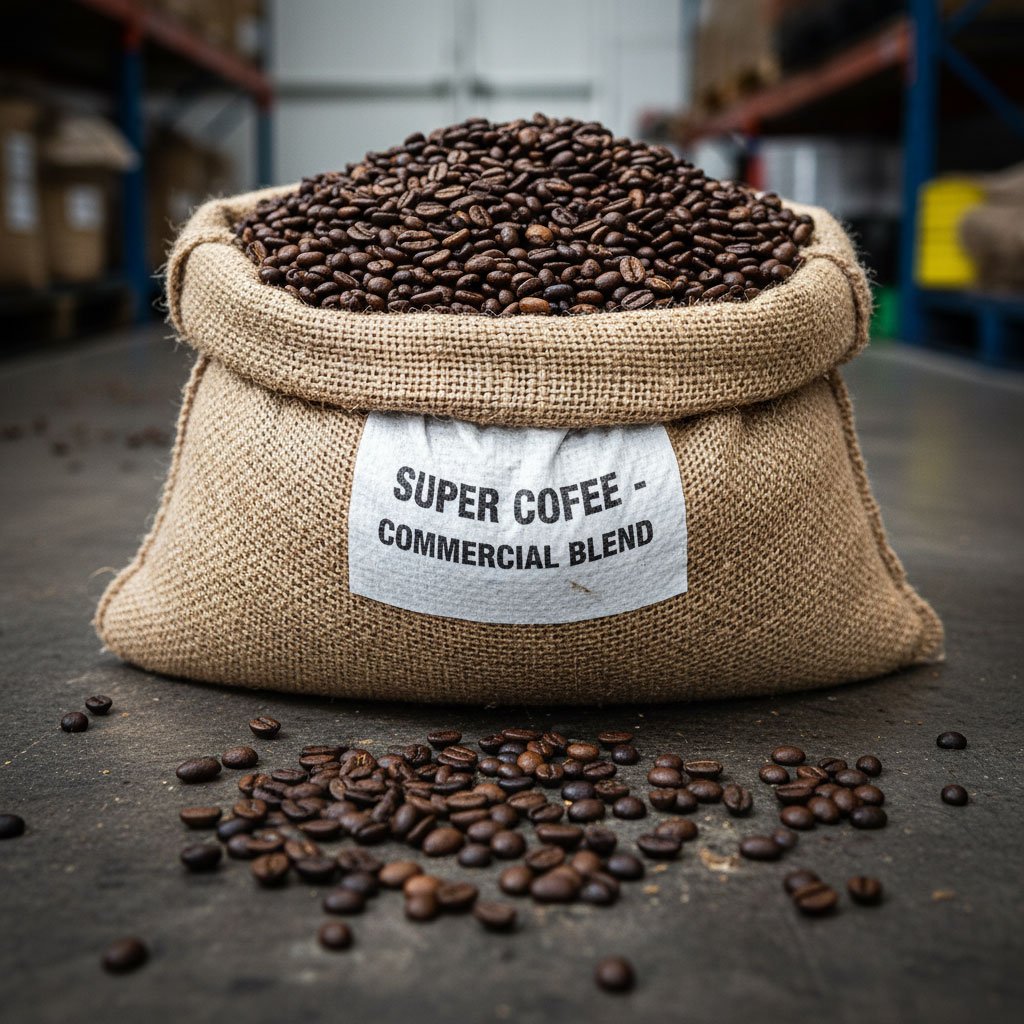Speciality vs Commercial Coffee: The Ultimate Comparison

Speciality vs Commercial
Coffee:
The Ultimate Comparison
Key Differences Every Coffee Lover Must Know
Discover the difference between speciality and commercial coffee, including quality, flavour, sourcing, roasting, and price.
Learn which type suits your taste and values best.
Speciality vs Commercial Coffee
What’s in Your Cup Matters
When you pick up a bag of coffee beans or sip on your daily brew, do you ever wonder what makes one coffee taste so rich and complex while another feels flat or bitter?
The answer often lies in whether you’re drinking speciality coffee or commercial coffee. While both are widely consumed across the world, they differ significantly in quality, sourcing, roasting, flavour, sustainability, and price.
In today’s article, we’ll explore the key differences between speciality and commercial coffee so you can make a more informed—and more enjoyable—choice the next time you reach for your favourite brew.
Speciality coffee –
High quality, distinct flavour profiles, and ethical sourcing
Speciality coffee is known for its high quality, distinct flavour profiles, and ethical sourcing. It’s grown with care in ideal climates, handpicked at peak ripeness, and processed to preserve every nuance of flavour. These beans are graded according to strict standards, such as those set by the Specialty Coffee Association (SCA), and often come from small farms with sustainable practices like shade-grown methods or organic farming.


Commercial coffee –
Produced on a larger scale, using beans of mixed or lower quality
In contrast, commercial coffee is produced on a much larger scale. The focus is on quantity and consistency, often using beans of mixed or lower quality. These coffees are typically roasted in bulk at high temperatures, resulting in a darker, bolder cup that may sacrifice the subtle flavours found in higher-grade beans.
The price
There’s also a difference in price between speciality vs commercial coffee—but that cost reflects more than just taste. By choosing speciality coffee, you’re investing in a product that supports fair trade, environmentally friendly agriculture, and small-scale coffee farmers around the globe.
Whether you’re a passionate coffee enthusiast or someone simply looking to improve your daily cup, understanding these distinctions can transform your coffee experience. From bean to brew, what you choose matters—not only for flavour, but also for the people and the planet behind each cup.
FAQs: Speciality vs Commercial Coffee
Q1: What is the main difference between speciality and commercial coffee?
A: Speciality coffee is graded 80+ on the SCA scale, handpicked, and ethically sourced, with distinct flavour profiles. Commercial coffee is mass-produced using mixed beans, prioritising quantity and consistency over taste.
Q2: Why does speciality coffee taste better than commercial coffee?
A: Speciality beans are picked at peak ripeness and roasted in small batches, preserving sweetness and aroma. Commercial coffee is bulk-roasted, producing a stronger but less complex flavour.
Q3: Is speciality coffee more expensive than commercial coffee?
A: Yes. Speciality coffee costs more because it reflects quality, fair pay for farmers, and sustainable farming. Commercial coffee is cheaper but often lower in flavour and traceability.
Q4: Which coffee is more sustainable: speciality or commercial?
A: Speciality coffee is usually grown by small farms using shade-grown or organic methods, making it more environmentally sustainable. Commercial coffee relies on large-scale production with less focus on eco-friendly practices.
Q5: Which type of coffee should I choose for daily brewing?
A: Choose speciality coffee if you value flavour, sustainability, and ethics. Opt for commercial coffee if affordability and availability are more important in your daily brew.
Ready to experience real flavour?



